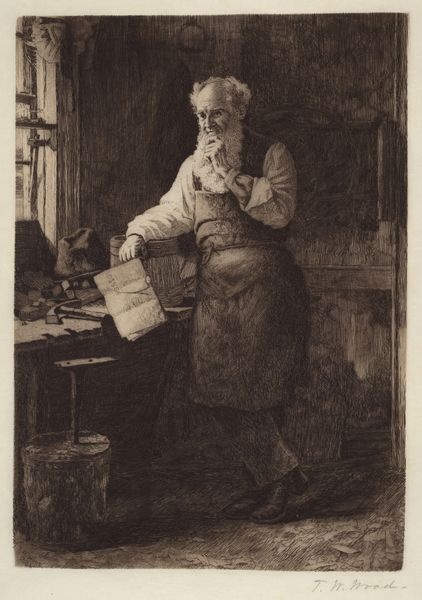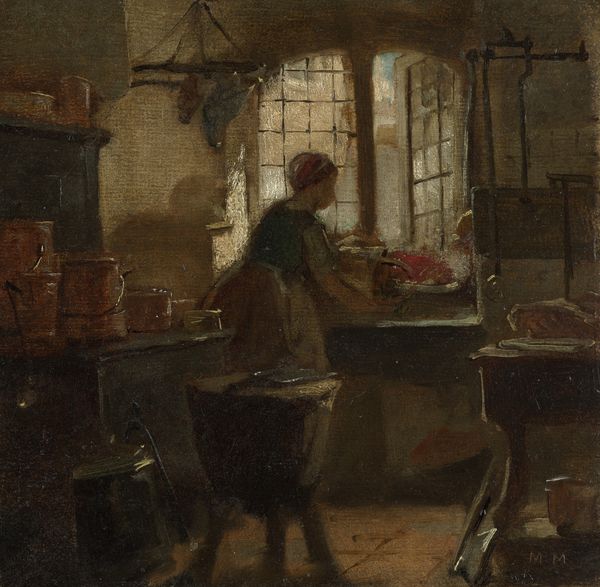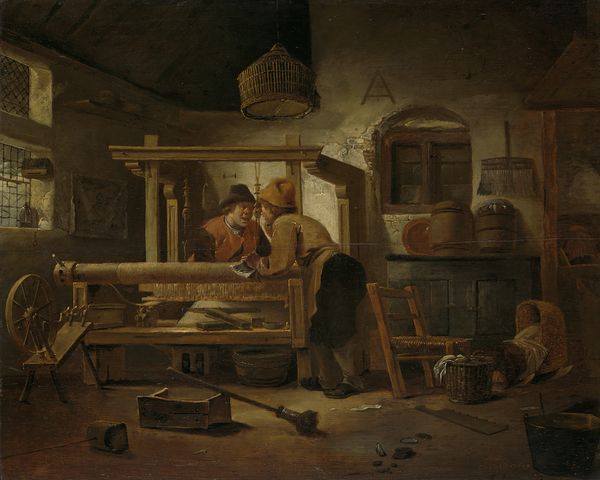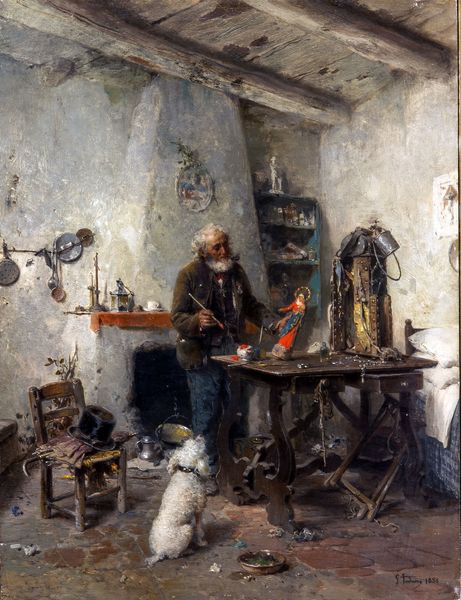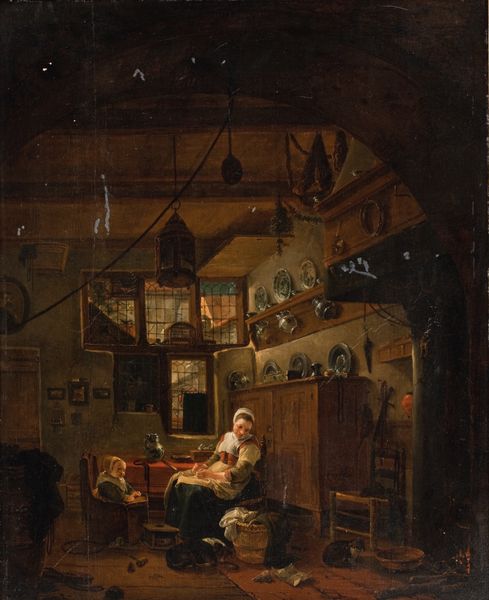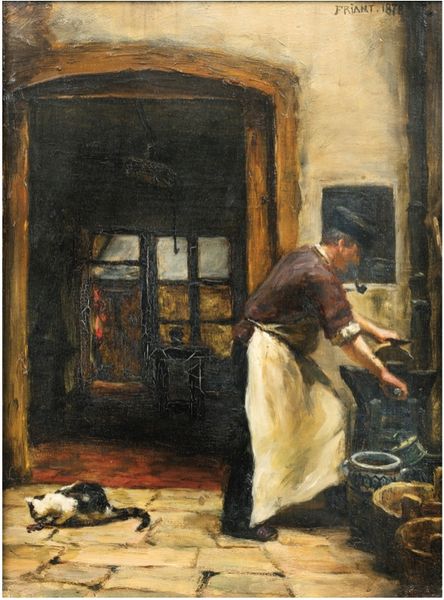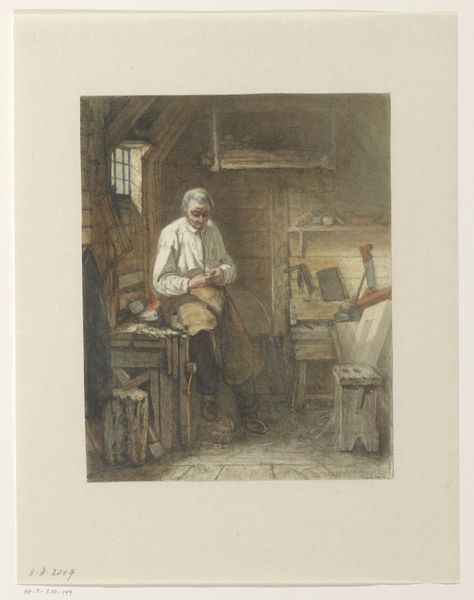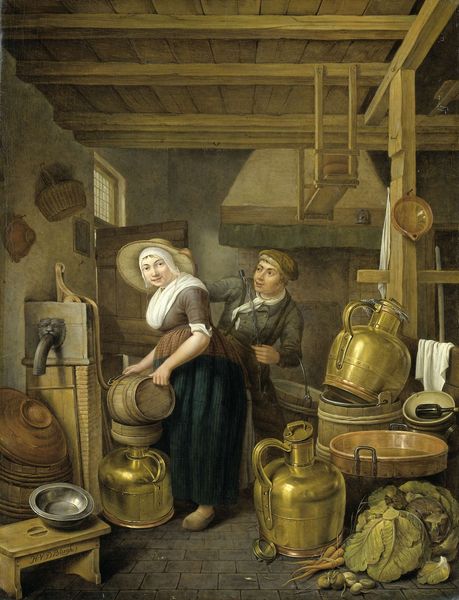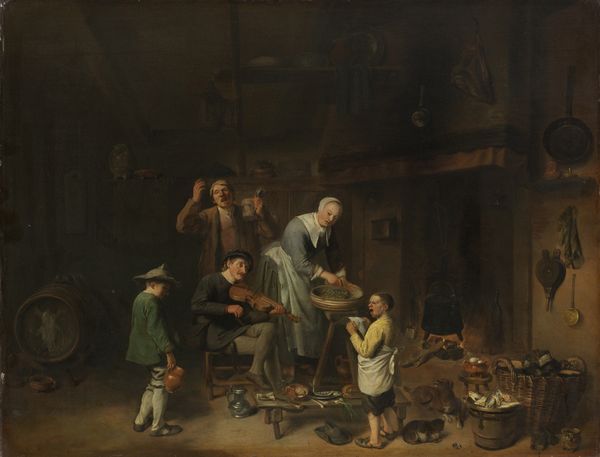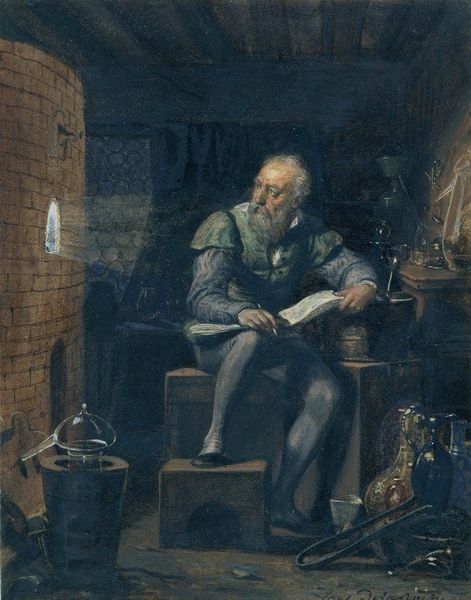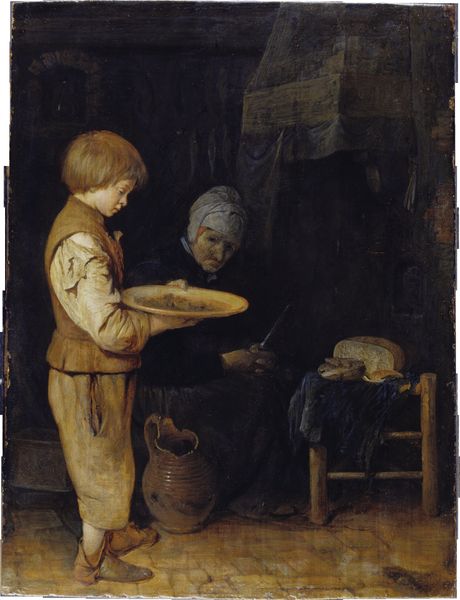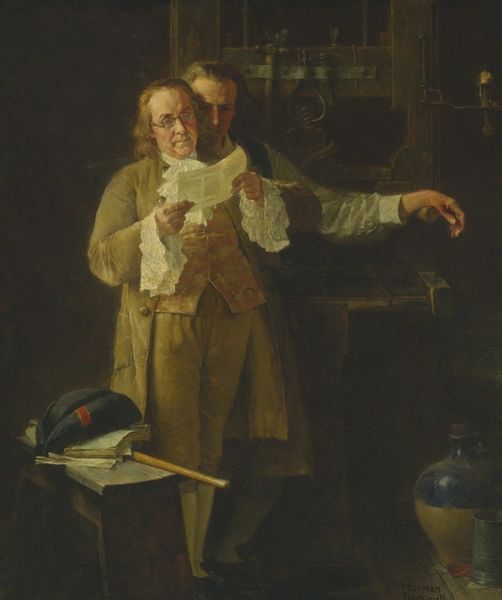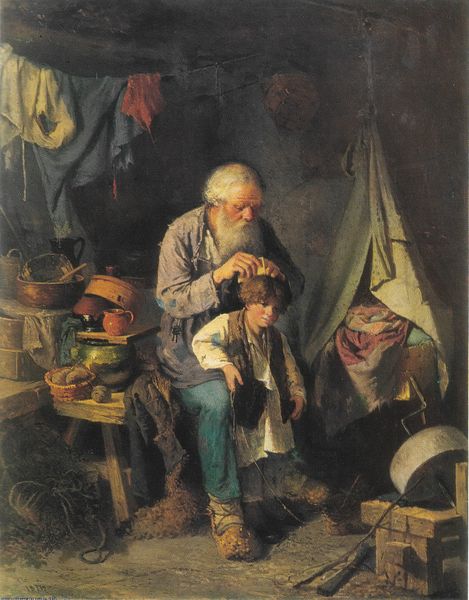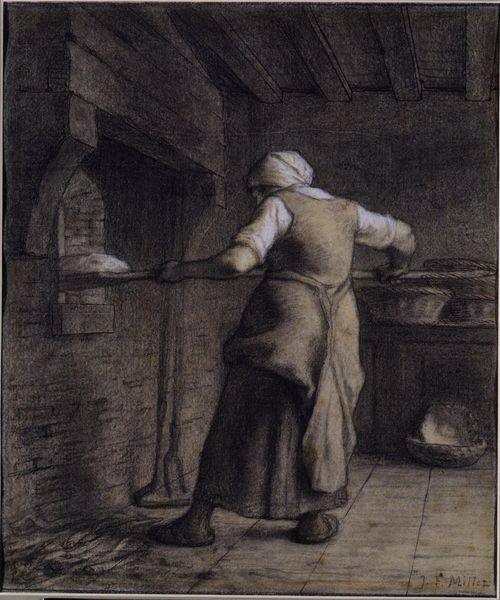
Dimensions: 23 7/8 x 21 in. (60.5 x 53.3 cm)
Copyright: Public Domain
Editor: Edgar Melville Ward's "The Coppersmith," painted between 1895 and 1898, showcases incredible detail in what looks to be an artisan's workshop. It's currently housed at the Met in New York. The soft lighting and meticulous rendering of the craftsman’s hands really draws me in. What stands out to you in this piece? Curator: What strikes me is how Ward positions the dignity of labor within a rapidly industrializing world. Notice how the coppersmith, a figure often marginalized in mainstream narratives, is placed at the center. Ward elevates this working-class man through careful attention to detail. Do you see how his craft becomes almost a form of resistance against the backdrop of mass production? Editor: I see your point. The man's focused expression does give off a feeling of pride and independence, almost as though his work is inherently valuable and needs no industrialization. I hadn't thought of it in those terms. Curator: Precisely. It’s an assertion of identity through craft. This can be viewed through a postcolonial lens as well; the value of localized artisanal knowledge in the face of globalizing forces. It challenges us to consider whose stories are deemed worthy of representation and why. Think about the socio-political implications. How does this depiction contrast with other portrayals of labor during that period? Editor: Now that you mention it, the romanticized view here differs drastically from gritty depictions in, say, social realism movements. I initially appreciated the surface beauty, but you've highlighted deeper layers concerning the politics of representation and labor. Curator: Exactly! And that's where the true value of art lies - not just in aesthetics but in understanding its relationship to broader socio-historical dialogues. Editor: This makes me appreciate Ward's choice to depict an everyday craftsman; he’s quietly resisting erasure in a rapidly changing society. Thanks! Curator: My pleasure. Thinking about art in terms of power and representation truly shifts our understanding.
Comments
No comments
Be the first to comment and join the conversation on the ultimate creative platform.
